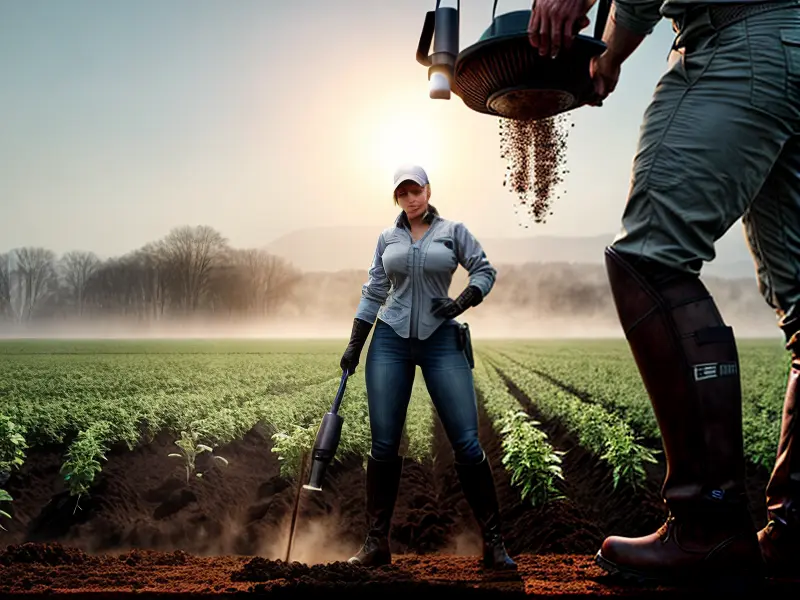In the world of agriculture, soil plays a vital role in determining the success of crops. Soil testing and analysis are essential practices that help farmers understand the quality and composition of their soil. By conducting thorough testing and analysis, farmers can make informed decisions about nutrient management, fertilizer application, and overall soil health. In this article, we will explore why soil testing and analysis are crucial for sustainable farming practices and how they contribute to the conservation of soil, water, and nature in Greene County.

Understanding Soil Composition for Effective Crop Management
Soil testing allows farmers to gain a deeper understanding of the composition of their soil. By analyzing various factors such as pH levels, nutrient content, and organic matter, farmers can determine the suitability of their soil for specific crops. This knowledge helps them make informed decisions about the types and quantities of fertilizers and soil amendments needed to optimize crop growth. Through accurate soil testing, farmers can proactively address deficiencies or excesses, leading to more efficient nutrient utilization and reduced environmental impact. This approach not only benefits crop yield and quality, but also fosters a sustainable farming environment.

Promoting Soil and Water Conservation through Soil Testing
In Greene County, soil and water conservation are of paramount importance. Soil testing plays a crucial role in preventing erosion, runoff, and the contamination of water bodies. By identifying areas with higher risks of erosion, farmers can implement conservation practices such as contour plowing or cover cropping to reduce soil erosion and retain moisture in the soil. Soil testing also helps determine the appropriate irrigation rates, preventing water wastage and promoting efficient water use. By utilizing the data obtained from soil testing, farmers can protect their soil and precious water resources, ensuring long-term sustainability for both their farms and the surrounding environment.
Harnessing the Power of Soil Testing for Nature Preservation
Preserving nature in Greene County extends beyond soil and water conservation. Soil testing enables farmers to adopt practices that contribute to the overall health and biodiversity of the local ecosystem. By understanding the composition of their soil, farmers can select the most suitable crops and plant cover crops that promote beneficial insects and wildlife habitat. Additionally, soil testing allows farmers to detect and address soil pollutants, preventing the contamination of the environment. By working in harmony with nature, farmers can contribute to the preservation of a diverse and thriving ecosystem.
Soil testing and analysis are indispensable tools for modern farming practices in Greene County. By understanding the composition of their soil, farmers can optimize crop management, conserve soil and water, and contribute to nature preservation. Implementing regular soil testing not only benefits the farmers but also ensures a sustainable future for agriculture. It is crucial for farmers in Greene County to embrace the power of soil testing and analysis to protect the environment, improve the quality of their produce, and preserve the rich natural heritage of the region.


